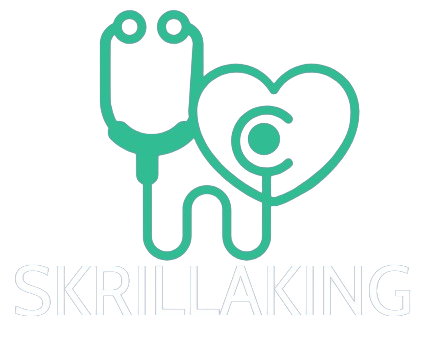When considering the key components of living a healthy and happy life, three pillars immediately spring to mind: nutrition, exercise, and rest. Embarking on the journey to optimal health requires dedication and discipline when it comes to incorporating elements of balanced nutrition, regular physical activity, and regular rest into one’s schedule. Read on to learn why these three essential pillars of sustained wellbeing are so important, and how you can start to use them to boost and maintain your own energy and wellbeing.
1. Nourish Your Body and Mind: A Guide to Eating Healthy
Eating healthy can have a profound effect on both mental and physical well-being. The key to nourishing your body and mind is to incorporate good nutrition with proper self-care habits. Here’s a few tips for getting started…
- Start your day with a nutritious breakfast. Look to include whole grains, protein and healthy fats in your meal. This will provide sustained energy for the entire day, helping you stay focused and productive.
- Focus on veggies. Many vegetables especially dark-leafy greens are packed with essential vitamins and minerals that are beneficial for your overall health. Making sure to include them in your meals can do your body a world of good.
- Be mindful of portion sizes. It pays to be aware of how much you’re consuming. Portion control can help keep calories in check and reduce snacking in between meals.
- Eat slower. Slowing down your eating can make it easier to discern when you’re feeling full and help you avoid overeating.
Taking steps towards improving your daily nutrition will help keep your body and mind in balance. Eating healthy doesn’t just mean refraining from unhealthy food choices, but actively seeking out beneficial foods to introduce to your diet. Having a conscious awareness of what goes into your body is the best way to make sure you’re getting the nourishment you need.
2. Exercising Your Way to Well-Being: The Benefits of Regular Exercise
When it comes to feeling more energized, positive, and overall healthier, regular exercise is key. Here are a few of the benefits associated with regular exercise that make it worth your time and dedication:
- Improved Mood: Exercise improves energy and relieves stress through the production of endorphins. Regular exercise also leads to better sleep, which can further help to improve your mental well-being.
- Healthy Heart & Lungs: Exercise strengthens the heart, increases lung capacity, andelevates the body’s oxygen intake. This helps to reduce the risk of developing cardiovascular diseases.
As well as the physical benefits, there are psychological benefits to be gained from exercising – it can help to boost self-confidence, increase concentration, and help to focus more on goals.
Furthermore, research has further linked exercise to help mental health disorders such as depression and anxiety. A 2017 study found that exercising regularly for three to five times per week can help to reduce symptoms of depression.
3. Recharge and Relax: Getting the Rest Your Body Needs
Grinding away at work, studying for an important exam, and tending to family can sap away our energy, leaving us feeling overwhelmed and exhausted. It’s important to remember that you can’t be successful when you’re constantly tired. That’s why taking the time to recharge is just as important as working hard. Here are three simple strategies to help you relax:
- Schedule time for yourself: Take a few hours each weekend and schedule it off just for you. Use this time however you wish – take a nap, go for a stroll, or set aside time for a hobby. Make this unstructured time something to look forward to.
- Unplug: Constant notifications, phone calls, and emails can be disruptive and exhausting. Give yourself a break from these distractions and unplug for an hour or two. Tucking away your phone and opting for an analog activity can help clear your head.
- Get moving: Exercise releases endorphins that can help reduce stress and give you energy. Activities like yoga, running, or tennis can help improve your mood, sleep patterns, and focus – and don’t forget to have fun!
By making sure to carve out time for yourself each day, you can rejuvenate and keep your body and mind running at optimal performance. Recharging and relaxation is immensely important – so don’t forget to make it part of your routine.
4. A Balanced Combination: Putting the Pillars of Healthy Lifestyle Together
Creating a healthy lifestyle doesn’t have to be a daunting challenge. It often starts with just a few small changes. Here, we’re going to focus on the four main pillars of a healthy lifestyle – healthy eating, physical activity, good quality sleep, and stress management. All of these are essential for living a healthier, more fulfilling life.
Start with making healthy food choices – this includes reducing processed and junk food and increasing whole foods such as fruits and vegetables, whole grains, and lean proteins. Eating healthy doesn’t have to be boring, it’s all about finding delicious and nutritious recipes that suit your lifestyle. Try experimenting with new ingredients and cooking methods to keep things interesting.
Physical activity builds physical strength and endurance and can also help to manage stress. Aim to get at least 30 minutes of moderate-intensity activity each day, such as walking. Incorporating strength training into your routine is also beneficial – it can increase muscle mass, leading to long-term health.
Getting enough quality sleep is also important for physical and mental wellbeing. Aim for around 8 hours of sleep a night, ensuring that you create a comfortable sleep environment. Disconnect from your electronics an hour before bedtime and create a relaxing bedtime routine.
Finally, create an effective stress-management plan. Incorporating relaxation techniques such as yoga and meditation can help to reduce stress. Taking time out to practice activities that you enjoy can also be helpful.
By putting the four pillars of healthy lifestyle together, you can create a balanced combination for a healthier and happier life.
5. Achieving Optimal Health Through an Integrated Approach
Achieving optimal health involves taking a holistic approach that considers all aspects of an individual’s life, from social and emotional health to physical wellbeing. Below are five key factors to creating a comprehensive approach to optimal health:
- Exercise: Regular physical exercise helps strengthen and maintain the body while also improving mental health, reducing stress, improving sleep, and increasing energy levels. Additionally, exercise can help reduce symptoms of depression, anxiety, and other mental health conditions.
- Nutrition: Nutrition plays an important role in the overall health of the body and is an essential component of optimal health. Eating a balanced diet with plenty of fruits and vegetables, lean meats, whole grains, and healthy fats is important for maintaining energy, building muscle, and preventing chronic diseases and other illnesses.
- Sleep: Getting enough quality sleep is paramount to optimal health. Adequate sleep helps with recovery, memory, focus, and overall health. It is also important to have consistent sleep habits and to get plenty of fresh air and sunlight.
- Stress Management: The body releases stress hormones as a response to stress, which can have adverse impacts on the body. Taking steps to manage and reduce stress, such as relaxation techniques, mindfulness, and counseling, can help keep stress hormones in balance and promote overall health.
- Health Services: It is important to make use of available health services, such as primary care providers, specialists, and mental health professionals to ensure that any health concerns are addressed promptly and correctly. Additionally, it is important to get regular screenings, assessments, and other health services as recommended by healthcare providers.
Taking an integrated approach to health that includes exercise, nutrition, sleep, stress management, and utilizing health services can help individuals achieve optimal health and wellbeing. This holistic approach helps ensure the physical, mental, and emotional aspects of health are addressed and taken care of.
We cannot neglect these three elements if we are to live a healthy lifestyle. Nutrition, exercise, and rest each show us the importance of taking a holistic view to our physical and mental health. With the right balance of the three, our health will thrive and we’ll enjoy life to its fullest.


